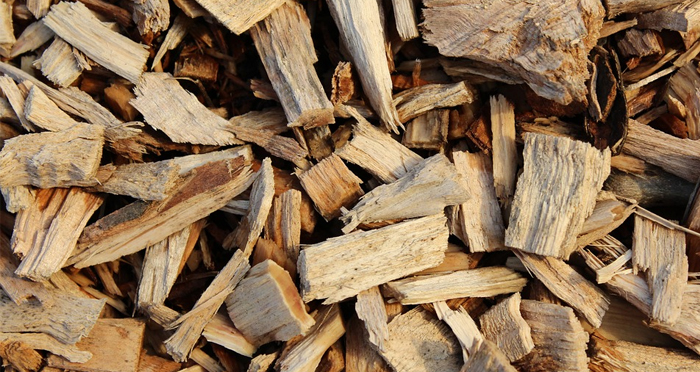A grant from the U.S Department of Agriculture could enable planners at Oregon State University – Cascades to move closer to achieving net zero energy usage across the future campus by studying the potential of integrating a woody biomass thermal energy system and campus-wide biomass district energy to provide heat to campus buildings.
The $193,910 grant was awarded by the USDA Forest Service’s Wood Innovations grant program and will be used to determine the technology and space requirements of a campus-scale biomass thermal energy system. The USDA Wood Innovations program supports projects that promote the use of wood in commercial construction, heat and power generation, and other wood product innovations that also benefit forest health.
The grant allows planners to investigate the potential integration of a biomass energy system into the OSU-Cascades campus as a renewable resource alternative. A preliminary study showed that a proposed woody biomass system would be technically feasible and economically viable.
“While many universities have visions of achieving sustainable resource use for portions of their campuses, few, if any, have had the opportunity to do so from the campus inception,” said Kelly Sparks, associate vice president for finance and strategic planning.
University campuses are considered ideal for district energy applications because of their typically compact and centrally organized buildings. Planners estimate that a campus-wide biomass energy system will save more than $366,000 annually over the comparable cost of natural gas heating and reduce fuel sources in local forest areas by 5,500 tons annually. This fuel source is currently controlled by slash burns to reduce quantity of hazardous fuels in forests.
OSU-Cascades will contribute $67,869 in matching funds towards the grant, including in-kind staff support.
The biomass energy system would be fueled by wood chips sourced directly from forest restoration projects in the Deschutes National Forest and within close vicinity of Bend.
Community benefits from the biomass energy project include reducing forest fuels and the threat of wildfire, and reducing costly pile burning that negatively affect air quality.
If the project is implemented, it would be the first woody biomass-fueled district energy system in an urban setting in Central Oregon.
About OSU-Cascades: Oregon State University’s branch campus in Bend, Ore., features outstanding faculty in degree programs that reflect Central Oregon’s vibrant economy and abundant natural resources. Nearly 20 undergraduate majors, 30 minors and options, and four graduate programs include computer science, energy systems engineering, kinesiology, hospitality management, and tourism and outdoor leadership. The branch campus expanded to a four-year university beginning fall 2015; its new campus will open in fall 2016.





